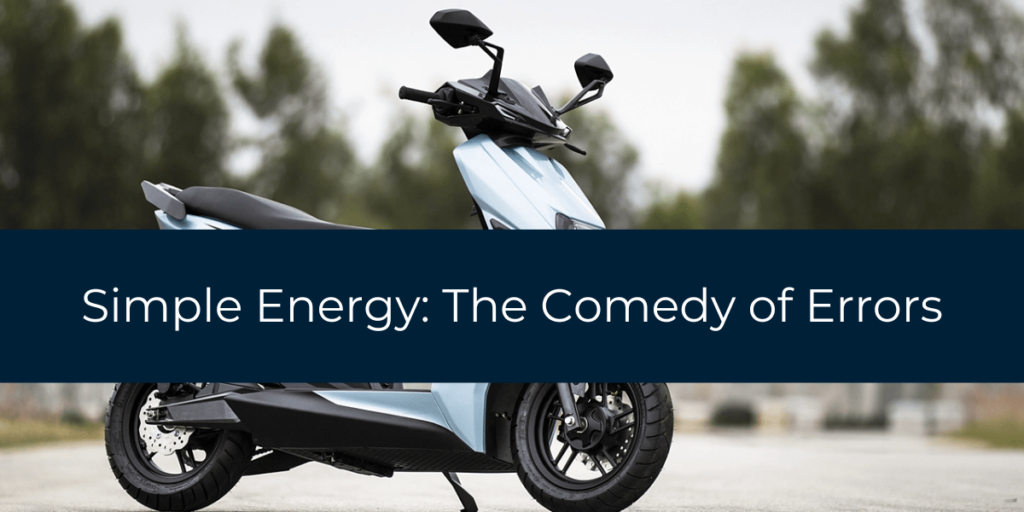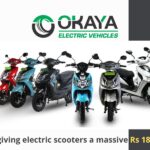
Simple Energy: A Promising EV Startup Facing Delivery Challenges
ZERO sales in September
Simple Energy is an electric vehicle (EV) startup based in Bengaluru, India, that aims to produce affordable and high-performance e-scooters for the Indian market. The company is founded in 2019 by Suhas Rajkumar, who claims to have a passion for EVs and sustainability.
The company launched its maiden e-scooter, Simple One, on August 15, 2021, at a price of INR 1.09 lakh. The e-scooter boasts of a certified range of 236 km, a peak power of 8.5 kW, a top speed of 105 km/h, and a boot space of 30 L. The company also plans to launch three more e-scooters and an e-car by 2025.
However, despite the impressive features and the positive response from the customers, Simple Energy has not been able to deliver any e-scooters to the consumers yet.
Simple Energy’s sales figures for September 2023 tell a different story. According to some reports, Simple Energy delivered zero electric scooters in the month of September 2023, crashing down from the previous figures of 13 vehicles in August.
| Month | Sales |
| June | 10 |
| July | 13 |
| Aug | 14 |
| Sept | 0 |
This shows that the company has plunged into a state of confusion, leaving pre-booking customers and the general public bewildered.
The report also cites some recent updates by Rajkumar on social media platforms and customer helplines, where he defended their delayed deliveries by saying that they didn’t expect such an overwhelming response from the customers and that they are facing some technical issues with their product.
He also promised that their low-cost scooter model with fewer features for Tier 2 and 3 cities will hit production in a couple of weeks, and that they will install 2000 charging stations in 15 months. He also teased a mid-price segment concept car set to debut by 2025.
These claims seem too ambitious and unrealistic given the current situation of Simple Energy. The company seems to be losing its focus on delivering its flagship product, Simple One, and instead diverting its attention to other projects that may or may not materialize.
The customers who have pre-booked Simple One are left wondering if they will ever receive their e-scooters or if they have been duped by a fraudulent company.
The credibility and reputation of Simple Energy are at stake, and it needs to act fast and transparently to regain the trust and confidence of its customers and stakeholders.
Otherwise, it may end up as another failed EV startup that couldn’t live up to its promises.
Simple Energy is not the only EV startup facing delivery challenges in India. Other players like Ola Electric, Ather Energy, and Bounce Infinity have also faced difficulties in meeting the demand for their e-scooters due to various factors such as component shortages, regulatory hurdles, infrastructure gaps, and consumer awareness.
The EV industry in India is still nascent and evolving, and it requires support from the government, the investors, and the consumers to overcome the challenges and achieve its potential. According to the Society of Manufacturers of Electric Vehicles (SMEV), the sales of electric two-wheelers in India increased by 158% in FY 2022-23, reaching 8.47 lakh units. This shows that there is a growing market for EVs in India, and Simple Energy hopes to capture a significant share of it by delivering its products as soon as possible.
Note: All the information is taken from the open sources, All India EV is not liable for any information




